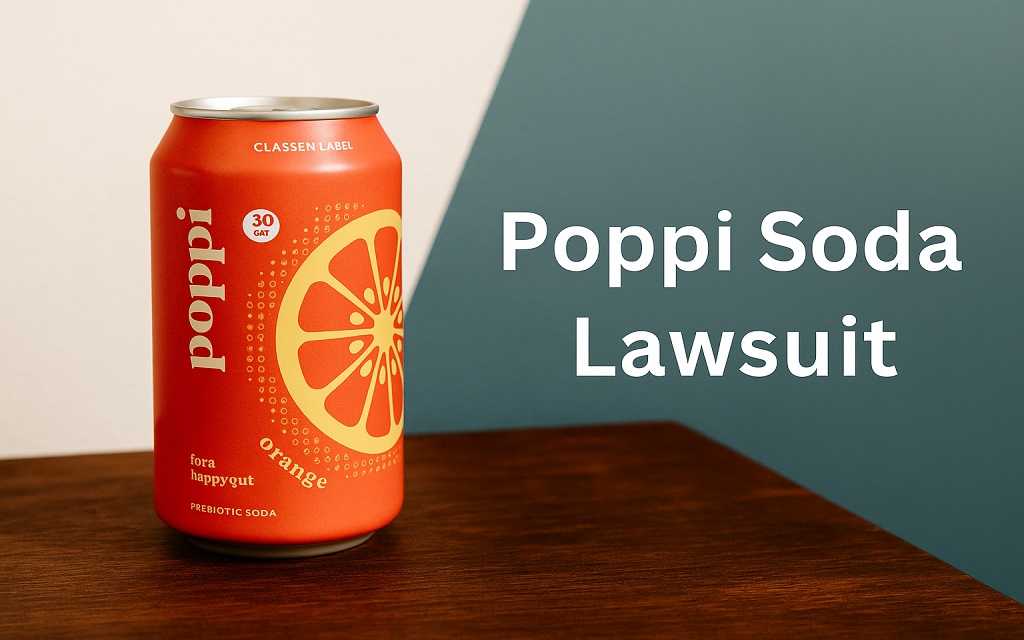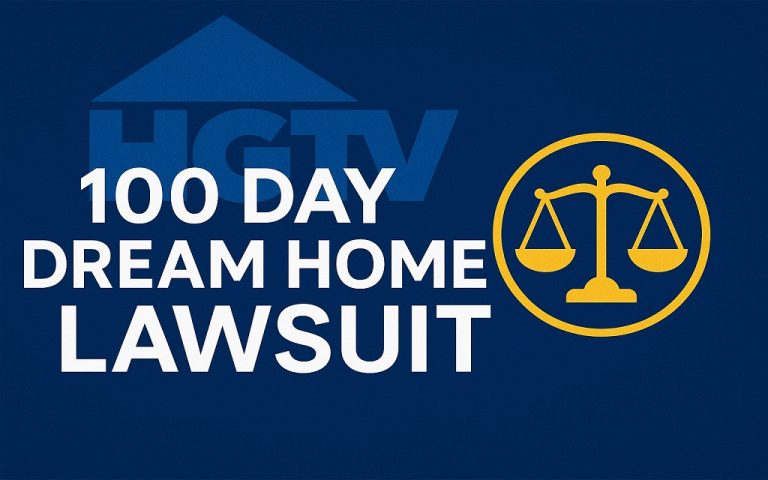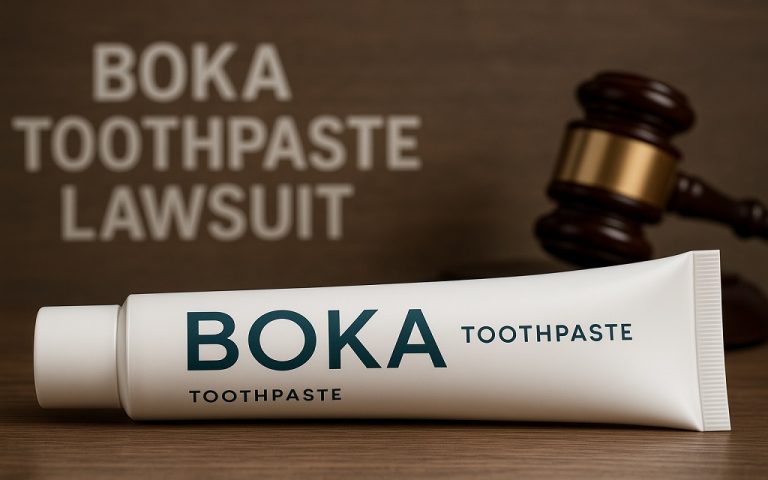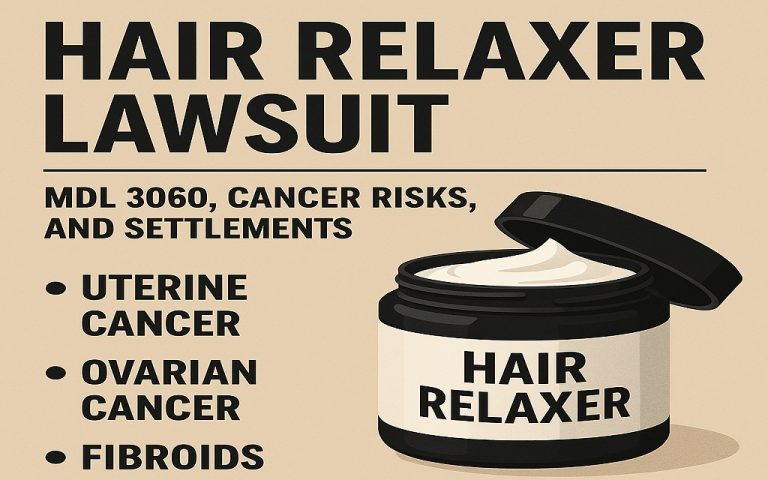The Poppi Soda Lawsuit gained national attention. Millions of consumers questioned claims about gut health benefits. The case ended in a class-action settlement worth $8.9 million. Thousands of customers nationwide qualified for refunds. The dispute involved advertising that exaggerated fiber effects. The issue highlighted how health-related marketing can mislead consumers. The settlement also raised questions about corporate accountability. The topic attracted both legal experts and nutrition analysts. The Poppi Soda Lawsuit shows how product labeling can create controversy. Could similar cases change how beverage companies promote health benefits?
What happened in the Poppi Soda lawsuit?
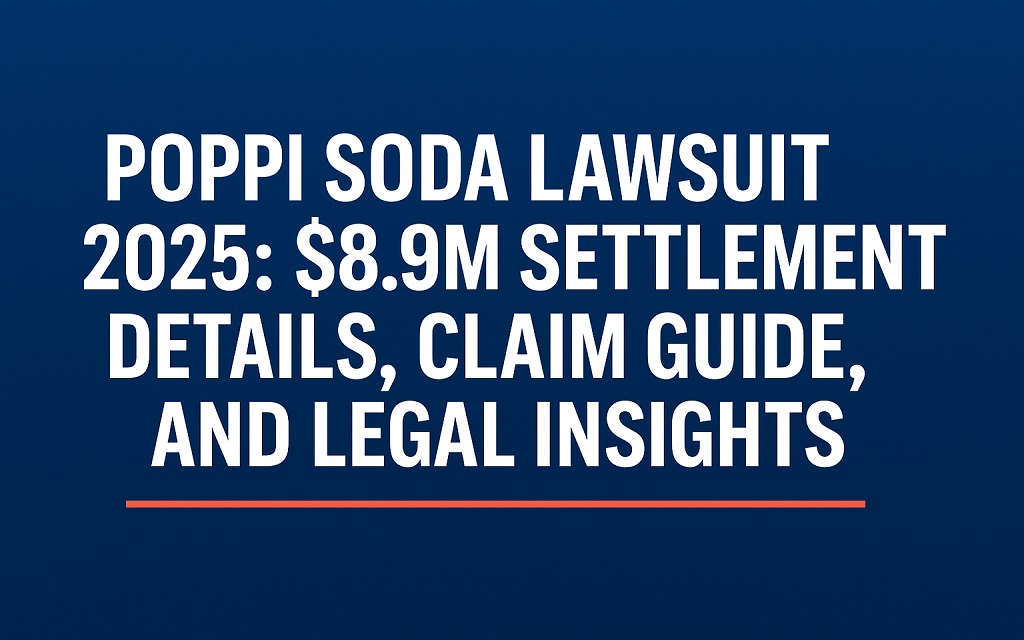
VNGR Beverage LLC agreed to resolve a national class-action case. The dispute centered on marketing that described Poppi as “gut-healthy.” The company set aside $8.9 million for a settlement fund. The lawsuit alleged that claims overstated benefits of inulin fiber. Each can contained about two grams of inulin. That amount had limited scientific value for gut support. Nutrition specialists stated that the quantity offered minimal results.
The lawsuit concluded without an admission of wrongdoing. The agreement avoided extended litigation and higher legal costs. Court documents confirmed that all funds would be used to support consumer compensation. PepsiCo purchased Poppi later in May 2025 for $1.95 billion. The acquisition showed strong confidence in the functional beverage sector. Could major corporations effectively balance profit goals and legal risk?
Eligibility and Claim Deadlines
Eligibility covers purchases between January 23, 2020, and July 18, 2025. The final claim date is September 26, 2025. Claims can be filed online or by mail. Administrators verify each form before approval. False entries result in rejection without payment.
Proof of purchase increases compensation amounts. Refunds reach $0.75 per can, $3 per four-pack, $6 per eight-pack, and $9 per twelve-pack. A maximum of $16 per household applies without receipts. Minimum payout is $5. Total claims may reduce individual recovery if submissions exceed fund capacity. Do national settlements provide adequate fairness across all claimants?
Reasons Behind the Lawsuit
A California consumer filed the original complaint in June 2024. The case alleged that Poppi misrepresented its gut health benefits. Plaintiffs argued that two grams of fiber cannot improve digestion meaningfully. The complaint cited missing warnings about potential discomfort. Reported side effects included gas, cramps, and bloating. Attorneys stated that advertising violated federal and state rules. The filing referenced Federal Trade Commission standards for truthful health claims.
Poppi denied liability but agreed to settle. The decision reduced public exposure and extended trial expenses. Similar strategies appeared in probiotic yogurt and vitamin lawsuits. Could stronger regulation prevent repeated disputes in the food industry?
Scientific Evaluation of Poppi’s Claims
Nutrition experts reviewed Poppi’s ingredient data. Specialists agreed that two grams of inulin per can provided minimal digestive benefit. Scientific guidelines recommend at least five grams daily for effect. Inulin occurs naturally in fruits, grains, and vegetables. Researchers emphasized that whole foods remain superior sources.
Frequent soda intake may raise sugar levels despite fiber content. Dietitians explained that excess sugar cancels potential digestive advantages. Scientific panels urged regulators to monitor functional beverage marketing. Industry professionals called for stricter evidence requirements. Does scientific precision matter enough to influence advertising reform?
Administration of the Settlement
The final hearing is scheduled for November 20 2025. Distribution will start within ninety days of court approval. Settlement administrators handle verification, payment, and documentation. Payouts may occur through mailed checks or digital transfer. Remaining funds support consumer-education projects on labeling accuracy.
Future advertising must clarify fiber quantity and health context. Product packaging must avoid misleading claims. Online descriptions must reflect verified nutrition data. Regulators will observe compliance for two years after approval. Could enforcement transparency restore public confidence in health-based marketing?
Legal Lessons and Consumer Protection
Consumer law protects buyers from deceptive advertising. Federal Trade Commission enforcement against false health claims has expanded. Companies face penalties when promotions lack clinical evidence. Regulatory agencies continue tightening supervision of supplement and beverage claims.
Legal analysts noted parallels with previous food-label cases. Courts now interpret phrases like “healthy” or “gut-friendly” more strictly. Attorneys view these standards as essential for consumer fairness. Could consistent enforcement stop misleading wellness marketing permanently?
Claim Filing Process
Eligible claimants must submit documents before September 26, 2025. Receipts or digital records confirm purchase verification. Settlement portals allow progress tracking. Claim status updates appear through official administrator websites.
False statements result in penalties or claim rejection. Honest reporting ensures fair distribution across applicants. Legal groups published step-by-step instructions to help participants. Claim accuracy promotes balanced compensation. Could simplified claim systems increase participation in future settlements?
Payout Expectations for Claimants
Payments depend on purchase volume and verified documentation. Larger claims may lower per-person payments when funds run low. Claimants without receipts still qualify for a basic award. Data from prior class-action food cases suggest average payouts near $15.
Attorneys clarified that lawsuits bring more than monetary refunds. Settlements also force changes in product design and labeling. Advocates see these reforms as lasting victories for consumers. Are small refunds enough when broader accountability is achieved?
Industry Impact and Market Outlook
The Poppi Soda Lawsuit influenced broader beverage marketing. Regulators began reviewing probiotic and prebiotic health statements. Competing brands reconsidered terminology around gut health and fiber content. Analysts projected higher compliance costs across the functional-drink sector.
PepsiCo’s $1.95 billion acquisition showed ongoing investor interest. Market researchers predicted continued growth in functional beverages through 2030. Stronger regulation may strengthen consumer confidence in this category. Will stricter rules encourage more science-based product innovation?
Preventing Future Lawsuits in the Beverage Sector
Beverage manufacturers can reduce legal exposure through verified research. Independent clinical trials confirm product effectiveness. Accurate labeling prevents consumer confusion. Transparent ingredient lists show honesty and accountability.
Legal consultants recommend frequent compliance audits. Updated training ensures teams understand current advertising laws. Rapid response to complaints avoids escalation. Documented oversight satisfies both regulators and investors. Could prevention strategies become the new industry standard?
Conclusion
The Poppi Soda Lawsuit demonstrated how false health claims create serious consequences. The $8.9 million settlement compensated affected consumers nationwide. It also forced Poppi to revise packaging and online content. Courts reinforced that product accuracy defines brand integrity.
The case emphasized scientific validation over promotional exaggeration. Transparent communication now shapes future advertising models. Legal experts predict stricter standards across functional beverages. The Poppi Soda Lawsuit proves that accountability protects both markets and consumers. Could factual transparency redefine the future of health-focused branding?
FAQs
What caused the Poppi Soda Lawsuit?
A 2024 consumer complaint claimed Poppi overstated gut-health benefits linked to minimal fiber content.
Who qualifies for compensation?
Anyone who purchased Poppi soda between January 2020 and July 2025 qualifies under settlement terms.
When is the final claim deadline?
All claims must be filed no later than September 26 2025.
What changes must Poppi make after settlement?
Packaging must state fiber content clearly and avoid unverified health implications.
How large are payments?
Refunds range from $0.75 per can to $16 per household depending on proof submitted.
Disclaimer: This article provides a general overview of the Poppi Soda lawsuit, based on publicly available information, and is intended for informational purposes only. It is not legal advice.
Musarat Bano is a content writer for JudicialOcean.com who covers lawsuits, legal news, and general legal topics. Her work focuses on research-based, informational content developed from publicly available sources and is intended to support public awareness. She does not provide legal advice or professional legal services.

